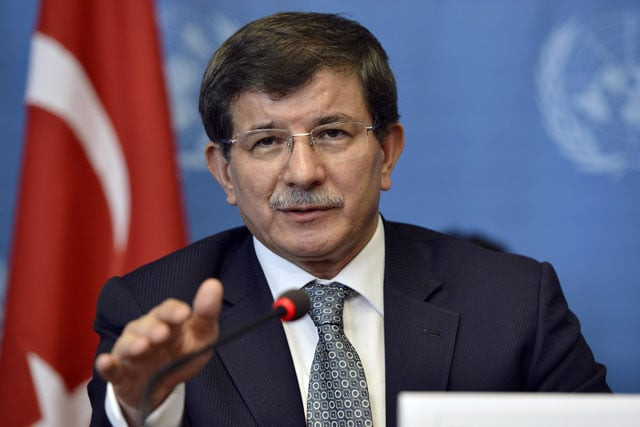Turkey 'not concentration camp', won't host migrants permanently: PM
Brussels has offered Turkey financial help and an acceleration of its drive for EU membership among other sweeteners

PHOTO: THENATIONALHERALD
"We cannot accept an understanding like 'give us the money and they stay in Turkey'. Turkey is not a concentration camp," Davutoglu said in a live television interview a day after meeting with German Chancellor Angela Merkel on the migrant crisis.
Turkey's Erdogan mocks EU migrant efforts on eve of visit
"I said this to Merkel too. No-one should expect Turkey to turn into a concentration camp where all the refugees stay in," he said.
But he agreed that "illegal immigration should be properly kept under control, therefore we will set up joint mechanisms" to contain the historic influx of Syrians and others escaping conflict, persecution and poverty who use Turkey as a gateway to Europe.
"We spoke of three billion euros ($3.4 billion) as 'fresh money' but it is not a fixed sum. Our (financial) needs may increase," Davutoglu said.
Merkel on Sunday had hailed progress on an EU-driven "action plan" after talks in Istanbul with Davutoglu and President Recep Tayyip Erdogan.
Turkey arrests 50 foreigners in Ankara blasts probe
Brussels has offered Turkey financial help and an acceleration of its drive for EU membership among other sweeteners to persuade it to do more to tighten its border security.
Though Turkey had initially poured cold water on Brussels' plan, describing it as nothing more than a draft, both Merkel and the Turkish leadership indicated that officials were making progress towards a deal on cooperation.
Pakistan stands with Turkey in fight against terrorism: army chief
More than 630,000 people fleeing war and misery have landed on Europe's shores so far this year, many making risky sea crossings from Turkey to Greece.



















COMMENTS
Comments are moderated and generally will be posted if they are on-topic and not abusive.
For more information, please see our Comments FAQ